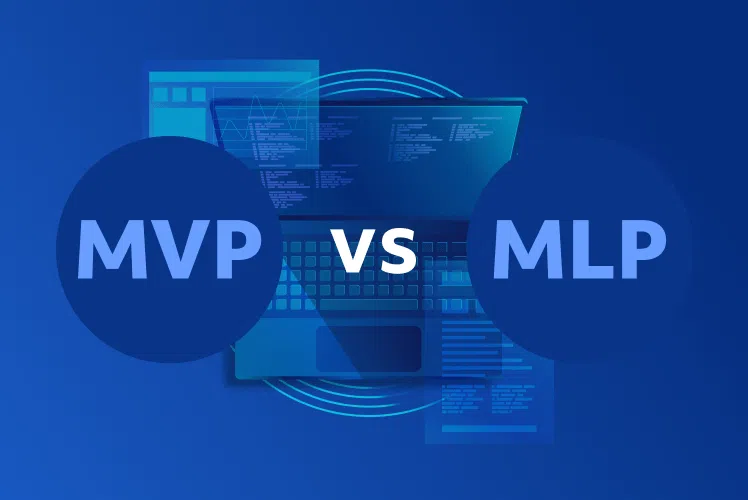Table of Contents
Node.js is considered to be a universal solution for basically any type of application. It is extremely scalable and light, is used in the hottest development trends (including IoT) and provides extreme efficiency of work.
So what exactly is Node.js, what are its most notable features, and are there any pitfalls to keep an eye on? Read below to find out.

Node.js: a brief history and the current state
Compared to such mammoths as Java or .NET, Node.js can be called a youngling – it’s only eleven years old. It was created by Ryan Dahl in 2009 as an attempt to make server-side JavaScript more efficient.
When the JavaScript V8 came out in 2008, Dahl took great interest in it. He enjoyed how fast, accurate, and efficient V8 was. And then Dahl just thought: why not combine JavaScript, asynchronous input/output, and a bit of HTTP-server functionality together? That was the start of the Node.js which was first launched in 2009.
The launch of Node.js in 2009 was soon followed by the introduction of npm (Node Package Manager) for Node.js in 2010. The Package Manager makes it much easier to share and publish the source code of packages and also contributes to easier installation (and uninstallation) and update of packages.
In 2010, Node.js 0.2.0 was released, together with Socket.io library. Later on throughout the years, Node.js have been undergoing optimization and improvement while more and more brands started to deploy it (LinkedIn and Uber started to use Node.js in 2011). Eventually, Node.js came to its status as one of the world’s most popular development tool and gained 71.9k stars on GitHub.
At the beginning of 2020, Node.js was named the number one most popular tool to use among the developers with 51.4% of the respondents casting a ballot in its favor. As for the companies that use it, Node.js is deployed by such well-known brands as Yahoo!, PayPal, Uber, eBay, and Microsoft. This list pretty much speaks in the favor of Node.js being reliable, secure, and high-performing.
Node.js overview: technology type
Node.js is a cross-platform and open-source JavaScript runtime environment. One of the main things to remember about Node.js is that it utilizes the event-driven I/O model and this approach makes Node.js extremely efficient and fast. Here is how it works: when a Node.js performs any I/O operation (i.e. accessing a filesystem), it resumes the operations as soon as the response comes back. This comes as an opposite to a common process of blocking the thread and hence wasting the CPU cycles waiting. In this way, Node.js is capable of much faster performance and this is one of its biggest benefits.
Other notable features of Node.js are:
- A single threaded model with event looping.
- Fast code execution: since Node.js is built on Chrome’s V8 JavaScript Engine.
- Asynchronous and event-driven: in this way, a server based on Node.js does not have to wait for the API to return data.
Node Package Manager
If we discuss Node.js, it is also important to mention Node Package Manager aka npm. It helps developers easily install the needed packages and provides a user-friendly and clear interface to work with them.
Now, many developers love npm for easy and convenient package installation. There are two options to choose from: global and local installation (with local being the default one). This gives npm a competitive edge in comparison to Ruby, for example, as Ruby insists on global package installation only and such an approach has several significant drawbacks.
The components of npm are:
- The website: used to discover packages, set up profiles, etc.
- CLI (Command Line Interface): a point of interaction between the developers and npm.
- The registry: a database of JS software and the corresponding meta-data.
In addition to the option to install and manage packages, npm also helps in sharing code with other npm users (or restricting it to specific users), creating organizations and forming virtual teams, application updating, and managing multiple code versions.
As can be seen, npm is a highly useful tool that facilitates the lives of Node.js developers and contributes to creating robust and error-free code.
The use of Node.js: most common cases
Due to its functionality, Node.js has rather narrow-focused use cases. Below are the most common areas of Node.js use.
Real-time applications
The asynchronous and event-driven nature of Node.js allows it to efficiently handle heavy input-output operations. That means it provides a high level of performance for real-time applications (RTAs) that process massive sets of data in real time.
A good example of an RTA would be chat which has such distinctive features as being lightweight, data-intensive, and has high traffic. Node.js successfully copes with the requirements for swift data transfer and is a great choice for building such products. And as for the chat design, many developers recommend using Socket.io as it provides bidirectional and event-based interaction between a browser and a server.
Single-page applications
A single-page application (SPA) implies having a whole application on one page. An example would be a social network, a mail product, an online drawing tool, etc. Such products also require smooth and efficient real-time data exchange so Node.js is a perfect fit as it allows smooth data update without the need to refresh the page every time to retrieve the data.
Browser games
One more quite common application of Node.js is the development of single and multiplayer browser games. That means such games work directly in the browser and do not require players to download any third-party plugins. Node.js offers developers several tools (i.e. EventEmitter) that help build complex yet high-performing browser games as well as share the code between the server and the client.
Hardware programming
Even though some developers are confused with the idea of applying JavaScript to IoT and microcontrollers development, it’s actually a thing. The ability of Node.js to process multiple simultaneous requests sent by many peripheral devices at once is a big benefit for the embedded systems. And there is even a low.js port that enables Node.js to run on power-efficient microcontroller boards so it adds to the Node.js contribution to hardware programming.
Node.js Pros and Cons
For now, Node.js seems like a silver bullet but it does have certain considerations to keep in mind. One needs to be aware of them in order to avoid possible risks and use Node.js at its fullest potential.
Pros
Cons
Expert Opinion
After learning strongly typed object-oriented programming languages in the university, the first attempts to master JavaScript and Node.js made me think: “All right, then. Keep your secrets”. The idea of event driven single threaded server programming seemed really odd. But when sinking deeper into it, you eventually see how to leverage all the advantages of the platform.
Whenever you are building applications that don’t require CPU intensive tasks, Node is a good choice. These may be chat applications, social networks, video-streaming apps, ad servers or any other real-time applications where speed is an essential part.
Node.js is increasingly becoming a go-to technology for multiple companies across the globe (Netflix, eBay, Trello, Uber, PayPal and many others). So if you have had a major shift in your life and have decided to become a startup owner for a change, Node.js is worth being considered.
Conclusion
Node.js is a really versatile development tool that provides immense efficiency and scalability to developers. At SoftTeco, we actively deploy it to create high-performing custom solutions for the clients across different industries and every time Node.js proves to be a great choice.
Our next article will be dedicated to Go – an open source programming language that was designed to make the development process easier, especially for products with complex architecture. Don’t forget to sign up for our newsletter and stay tuned!



Comments